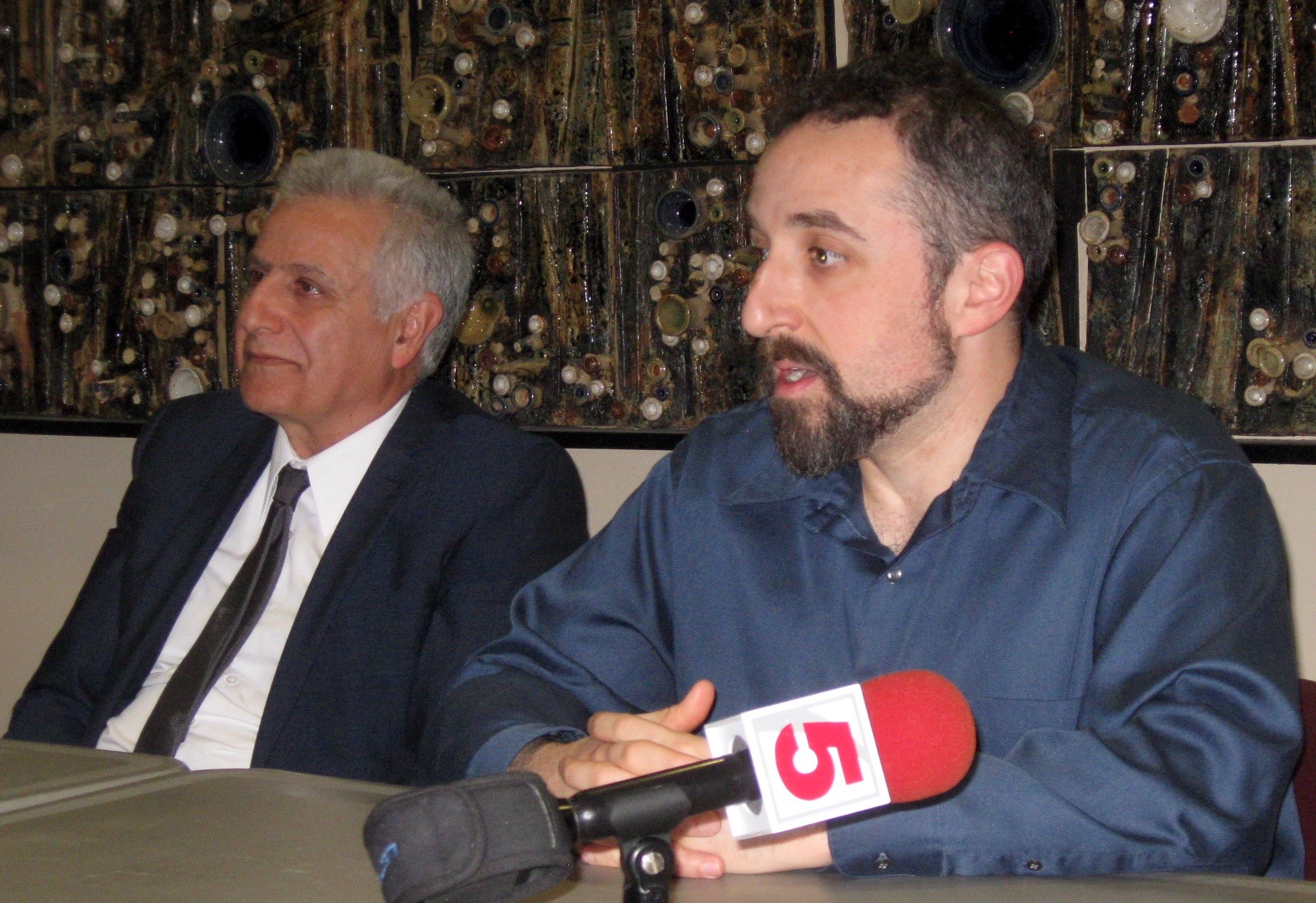
By CARL GREEN
Illinois Correspondent
Edwardsville, IL – The two Southern Illinois University faculties have approached organizing bargaining units from sharply different perspectives over the years, but now they have the same purpose – to protect their schools, their jobs and their students in the current state budget standoff.
SIU-Carbondale’s faculty organized in 1996 after a series of layoffs and other damaging steps by administrators. Faculty members decided they needed to protect themselves.
Faculty at SIU-Edwardsville have not had an adversarial relationship with their administrators, so they haven’t yet formed a bargaining unit. But with the current lack of support from the state, they are “within reach” of attaining a majority of approximately 400 faculty needed to form a bargaining unit, organizers say.
That means both faculties are likely to be fighting at the bargaining table and in the Capitol in coming weeks to protect Illinois’ long tradition of strong public universities.
Union leaders from both schools held a joint meeting at SIUE’s University Center in late March to discuss their experiences and exchange mutual support.
SIUE English Professor Charles Berger, co-chair of the organizing campaign along with Sociology Professor Linda Markowitz, said it’s important to remember that the faculty is not in a fight with the administration.
 “With the state in the kind of crisis it’s in now – with the budget being held hostage – we think it very important as a faculty that we have a legally constituted, binding role to play in the future of SIUE, particularly with regard to academic programs, class sizes, the existence of departments and programs,” Berger said.
“With the state in the kind of crisis it’s in now – with the budget being held hostage – we think it very important as a faculty that we have a legally constituted, binding role to play in the future of SIUE, particularly with regard to academic programs, class sizes, the existence of departments and programs,” Berger said.
“I think what we need now is a more professionalized approach to the gathering of data, budget data, etc., so that we as faculty can make informed decisions and also work with the administration,” he added.
“If we have a union, we feel that we can work with the same kind of information that the board of trustees and the administration has, so that we can make informed decisions based on having our own people scrutinizing the budget and seeing what the situation really is,” he said.
“We don’t regard that as adversarial, we regard that as collaborative.”
COMMON GOAL
Bret Seferian, a union rep for the Illinois Education Association at SIUC, said that while faculty and administrators there have had major disagreements over the years, their common goal now is to protect the university.
“Relationships are not always adversarial,” he said. “We are working quite hard to get SIUC funding from the state. We work with student government, and we work with people in the administration, to talk about things we might do. We do our own thing as well, too.
 Seferian noted one area where the union is vital – when cutbacks come.
Seferian noted one area where the union is vital – when cutbacks come.
“In the contract for the faculty at SIUC, there is language about the rules – what has to happen, the process, the system, what the administration has to do,” he said. That is a protection the SIUE faculty lacks.
Public universities throughout the state have been damaged by Gov. Bruce Rauner’s blocking passage of a state budget without including crippling attacks on union rights, which Democrats have steadfastly opposed.
Some functions of government have been funded anyway through court decisions, but higher education has been left high and dry.
Rauner even vetoed legislation to fund $721 million in MAP grants which help low-income students cover their tuition at community colleges and state universities. House Democrats came two votes short of overriding that veto.
FACULTY ROOTS
Markowitz said faculty tend to stay longer than top administrators and that as a result, they feel a strong commitment to the school and the community.
“I think it’s important for administrators and faculty to understand that we want to work together,” she said. “This is the future of SIUE, and the truth is that administrators come and go, but faculty are here for a long time, and we have a very vested interest in our students and the quality of education in the state of Illinois, because we’re raising families here.
“Our kids are eventually going to go to college, and we want to make sure that the universities are here and can provide not only the children now but our children in the future with the best educations possible.”
 Joining the discussion was Dr. Morteza Daneshdoost, retired professor of engineering who was one of the organizers of the SIUC bargaining unit in the 1990s and later served as lead negotiator and grievance chair for the union.
Joining the discussion was Dr. Morteza Daneshdoost, retired professor of engineering who was one of the organizers of the SIUC bargaining unit in the 1990s and later served as lead negotiator and grievance chair for the union.
His point was that the SIUE faculty will need to have its own voice when decisions are made on how to use dwindling resources.
“It will come down to the universities having to make decisions about what they’re going to do when there’s no more money, and the faculty should be a partner at the table when it is decided how they’re going to weather that crisis,” he said. “The real problem is decision-making. The money is there.”
Otherwise, the speakers emphasized, it’s not just the faculty who will suffer, it’s the students, too.
“A student is in a university for four or five years,” Seferian said. “If in two of those years, the school has no money and things are really tight, they lose educational opportunities that they don’t get back.
“The union guarantees the faculty a voice in the direction of the institution in a way that nothing else does,” he added. “That’s the real thing.”
QUALITY TEACHING
Berger noted that he teaches writing to students from all majors, and it’s a crucial lesson that requires one-on-one attention.
“SIUE prides itself on close relationships between faculty and students,” he said. “There is a lot of personal attention paid to the progress students are making academically. We cannot sacrifice that. We cannot lose that. On an issue like that, we are at one with the administration.”
“Personally, I think it would be very exciting to bring the faculty together as a union and have this really open discussion in which we are talking to each other with no fear that we have to please administrators or whatever. Let’s really find out what the faculty wants and needs.”

